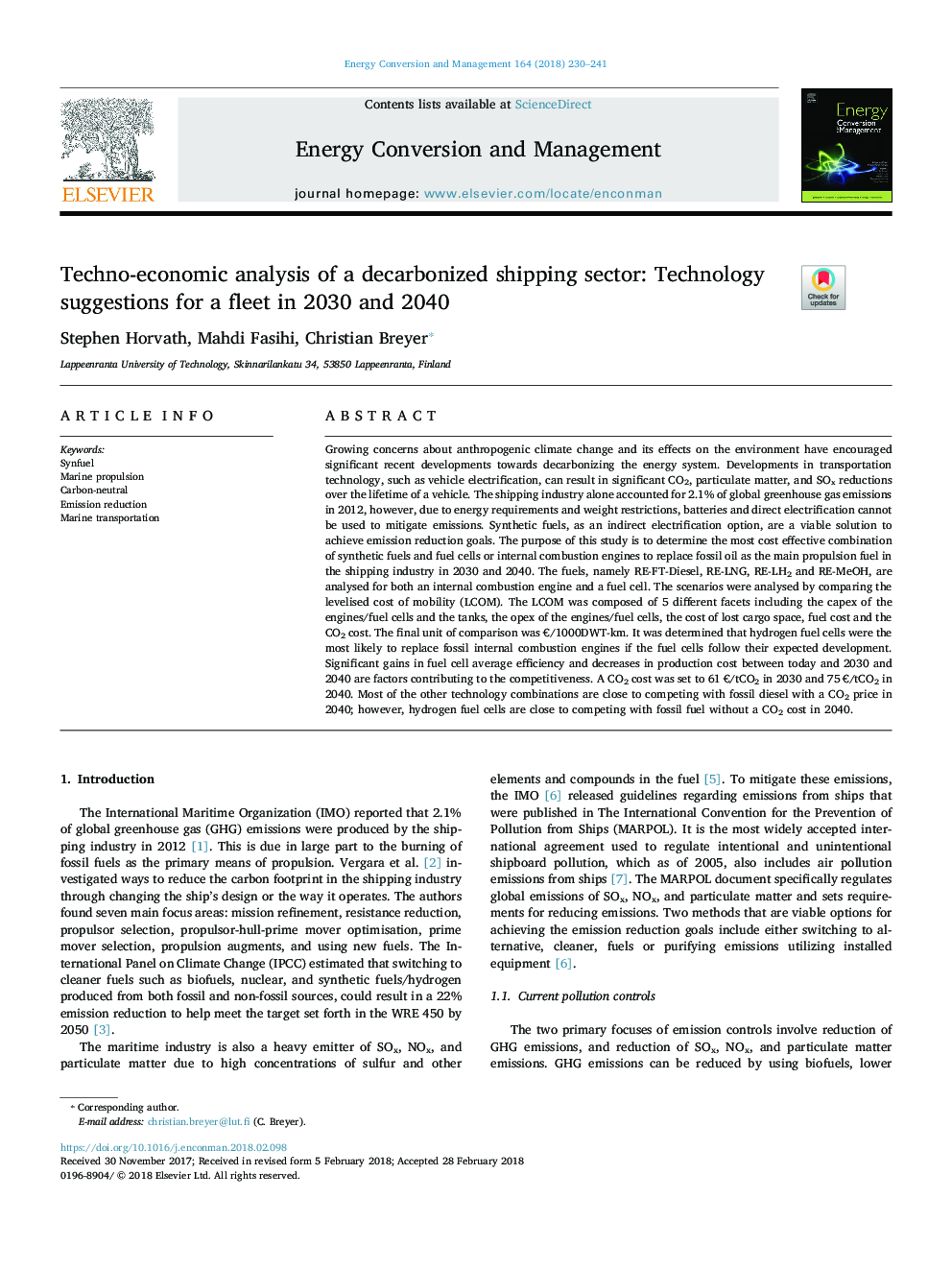| کد مقاله | کد نشریه | سال انتشار | مقاله انگلیسی | نسخه تمام متن |
|---|---|---|---|---|
| 7158692 | 1462798 | 2018 | 12 صفحه PDF | دانلود رایگان |
عنوان انگلیسی مقاله ISI
Techno-economic analysis of a decarbonized shipping sector: Technology suggestions for a fleet in 2030 and 2040
ترجمه فارسی عنوان
تجزیه و تحلیل تکنولوژیکی و اقتصادی بخش حمل و نقل گازباری شده: پیشنهادهای فناوری برای ناوگان در سالهای 2030 و 2040
دانلود مقاله + سفارش ترجمه
دانلود مقاله ISI انگلیسی
رایگان برای ایرانیان
کلمات کلیدی
موضوعات مرتبط
مهندسی و علوم پایه
مهندسی انرژی
انرژی (عمومی)
چکیده انگلیسی
Growing concerns about anthropogenic climate change and its effects on the environment have encouraged significant recent developments towards decarbonizing the energy system. Developments in transportation technology, such as vehicle electrification, can result in significant CO2, particulate matter, and SOx reductions over the lifetime of a vehicle. The shipping industry alone accounted for 2.1% of global greenhouse gas emissions in 2012, however, due to energy requirements and weight restrictions, batteries and direct electrification cannot be used to mitigate emissions. Synthetic fuels, as an indirect electrification option, are a viable solution to achieve emission reduction goals. The purpose of this study is to determine the most cost effective combination of synthetic fuels and fuel cells or internal combustion engines to replace fossil oil as the main propulsion fuel in the shipping industry in 2030 and 2040. The fuels, namely RE-FT-Diesel, RE-LNG, RE-LH2 and RE-MeOH, are analysed for both an internal combustion engine and a fuel cell. The scenarios were analysed by comparing the levelised cost of mobility (LCOM). The LCOM was composed of 5 different facets including the capex of the engines/fuel cells and the tanks, the opex of the engines/fuel cells, the cost of lost cargo space, fuel cost and the CO2 cost. The final unit of comparison was â¬/1000DWT-km. It was determined that hydrogen fuel cells were the most likely to replace fossil internal combustion engines if the fuel cells follow their expected development. Significant gains in fuel cell average efficiency and decreases in production cost between today and 2030 and 2040 are factors contributing to the competitiveness. A CO2 cost was set to 61â¯â¬/tCO2 in 2030 and 75â¯â¬/tCO2 in 2040. Most of the other technology combinations are close to competing with fossil diesel with a CO2 price in 2040; however, hydrogen fuel cells are close to competing with fossil fuel without a CO2 cost in 2040.
ناشر
Database: Elsevier - ScienceDirect (ساینس دایرکت)
Journal: Energy Conversion and Management - Volume 164, 15 May 2018, Pages 230-241
Journal: Energy Conversion and Management - Volume 164, 15 May 2018, Pages 230-241
نویسندگان
Stephen Horvath, Mahdi Fasihi, Christian Breyer,
